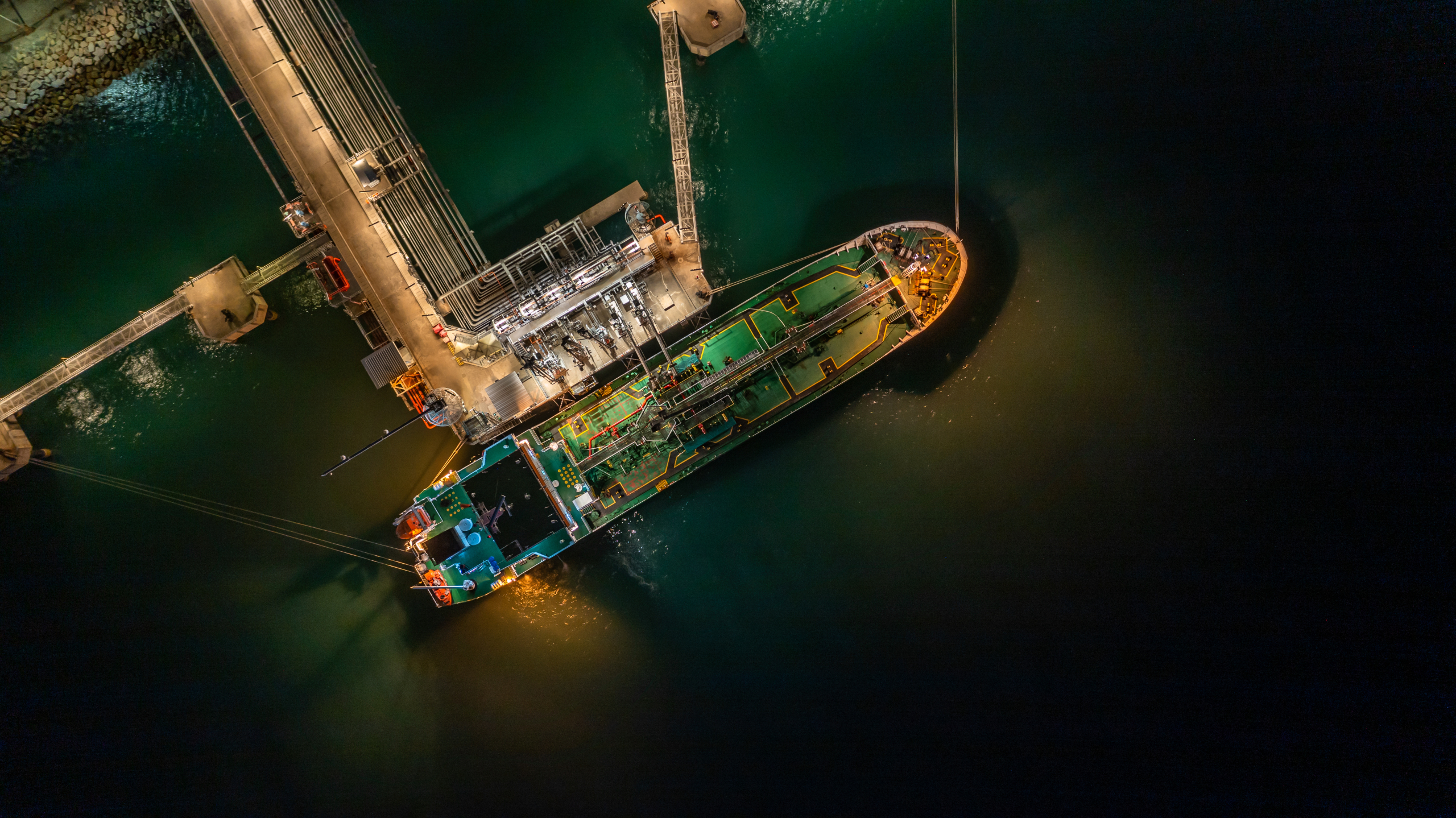
A Brief History of Marine Diesel Applications – Part 2
Ever since it surpassed steam power in efficiency and versatility — the marine diesel engine has been the driving force behind America’s maritime economy. Without marine diesel power, cargo doesn’t reach its destination and the global economy grinds to a halt. As a marine diesel fuel supplier — Mansfield Service Partners has always paid close attention to developments in the field and kept a close eye on its future.
In part 2 of our brief history of marine diesel applications, we look at the major technological advances and milestones in marine diesel development in more recent years and what the future may hold.
Marine Diesel Power Enters the Modern Age (1960s-80s)
The biggest advances for marine diesel powerplants in the 50s and 60s were turbo and supercharging and the standardization of marine diesel fuel along with an increase in fuel quality.
Turbo and supercharging made diesel ships and other vessels both more efficient and more powerful. Diesel fuel standardization and improvements in the quality of marine diesel fuel allowed manufacturers to build more powerful engines and trust that they would deliver consistent performance.
Through the 1970s and 80s, turbodiesel engines in marine applications became increasingly advanced with technological advances to turbocharging ranging from Honeywell’s development of variable vane turbochargers to intercoolers to chill the intake charge and increase the oxygen density for more power.
Marine diesel advances in the 1960s-80s were:
- Primarily focused on increasing power with an eye on efficiency.
- Influenced by advances in turbocharging technology.
- Leveraged by higher quality, standardized marine diesel fuel.
- Characterized by more high-speed marine diesel engines making more power.
Diesel Power in Marine Vessels Evolves Further (1990s-2000s)
The 1980s and 90s saw the first serious focus on increasing fuel efficiency in marine diesel engines as well as lowering emissions. While diesels have always had fuel injection — electronic fuel injection systems became more common in diesel boats and ships in the late 80s and 90s. This allowed for much more precise fuel metering and better control over fuel-air ratios.
The end result was better fuel efficiency, more power, and lower emissions. Direct injection had been present in marine diesel engines in a few places here and there, but the stricter diesel emissions regulation of the 1990s made direct injection the default, especially in two-stroke marine diesel engines. While DI entered the frame mainly to satisfy the EPA’s demand for a 75% reduction in diesel emissions — it also brought better performance along for the ride.
More advanced direct injection systems with high-pressure fuel rails and unit injectors have continued to drive up both power and efficiency in the 2000s. At the same time, newer fuel injection systems, pumps, and unit injectors can be a lot more sensitive to fuel quality.
Ensuring you have a reliable supply of high-quality marine diesel fuel free of contaminants is more important than ever. It’s more than just emissions and performance at stake. Using poor or questionable quality marine diesel fuel can be a costly mistake when a pump or injector fails due to insufficient lubricity or contamination.
The main factors influencing marine diesel evolution in the 90s-2000s have been:
- Much stricter diesel emissions regulations in the U.S. and internationally.
- Widespread use of modern electronic direct injection systems.
- High-pressure fuel systems which deliver more power and lower emissions.
- Fuel systems that are more sensitive to marine diesel fuel quality than in the past.
The Future of Marine Diesel Fuel and Diesel Engines (2020s and Beyond)
The diesel engine is under more pressure than ever before to hit emissions targets and this has had a noticeable effect on marine diesel fuel supply as well as the newer engines being built to comply. At the same time, attention is being paid to America’s reliance on foreign oil and how crippling a disruption to our vital supply of marine diesel fuel could be to our economy and even national defense.
While diesel has gotten somewhat of an unfair bad rap in some circles of late — the fact remains that diesel fuel will likely remain the predominant fuel source for America’s cargo vessels, pleasure boats, and military ships for decades to come. There is no ‘heir apparent’ to the marine diesel engine as of yet. The industry has also stepped up to the plate on more than one occasion to successfully meet or exceed increasingly ambitious emissions targets.
In our opinion, the future for marine diesel engines is bright and it will be largely shaped by American ingenuity. There is still room for innovation in this space and the demand and necessity will help drive it. In the next few decades, we will see more marine diesel-electric hybrids, marine diesels running on alternative fuels, such as renewable diesel fuel, sophisticated new turbocharging applications, and much more.
Just some of the most exciting future advancements for marine diesel tech include:
- MIXPC (Mixed Pulse Converter) systems
- Advanced dual-turbocharger systems (DTS)
- Controllable Exhaust Systems (CES)
- Laser fuel ignition in marine 2-stroke diesel engines
- Diesel-electric hybrid marine engines from Volvo Penta and others
- Increased use of renewable diesel fuel and biodiesel
- More sophisticated solutions to supplement or replace SCR for emissions
Mansfield Service Partners for Marine Diesel Distribution
Marinas, fishing fleets, cargo fleets, passenger vessels, and more rely on Mansfield Service Partners for reliable delivery of high-quality marine diesel fuel.
Since 1932, Mansfield Service Partners has been the fuel supplier people trust when it comes to service, on-time fuel delivery, and quality. From 24-hour fuel delivery to industrial lubricants, DEF, and environmental services, like used oil collection — we’ve got you covered.
Contact Mansfield Service Partners for your business today. Reach us at (800) 683-1331 or email any inquiries to info@mansfield.energy


